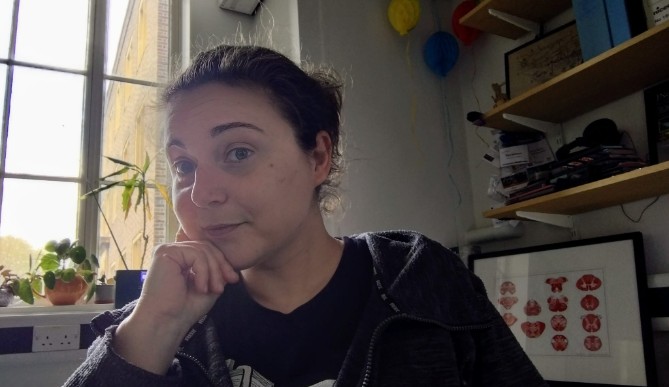
Dr Elisa Galliano has been awarded a Wellcome Trust Career Development Award, totalling over £1.6 million for six years, to investigate neuronal plasticity at the Department of Physiology, Development and Neuroscience, University of Cambridge.
The project, “Olfactory plasticity for adaptation and learning”, aims to understand how animals can rapidly process ever-changing sensory inputs such as odours and produce appropriate responses for both behavioural stability and learning.
For instance, the brain manages to maintain a stable perception of coffee smell not just when we sampled undisturbed most mornings in our own kitchen, but also also when we have a slightly blocked nose, or when we sample it in highly enriched olfactory environments such as outdoor food markets. It does so by employing a process called neuronal plasticity, by which neurons change their shape and function to maintain perceptual stability. Neuronal plasticity can also be used to learn to form new associations, like when we go to a coffee sampling class, and we are trained in assigning bean origin to specific aromas.
This balance between flexibility and stability is crucial in all brain networks, particularly in olfaction an evolutionary conserved and very dynamic sensory modality. In animals olfaction is essential for survival, and in humans its direct connections with the limbic system and the endocrine system underscore its significance also in integrated functions. Anosmia – the absence of the sense of smell – affects around 20% of adults and correlates with eating disorders, mental health issues, and neurodegenerative disorders. Understanding how the olfactory system dynamically processes ever-changing stimuli is crucial for gaining insights into this often-understudied sense.
The results, which have direct interest and generalizability across other networks, are going to be facilitated using the mouse olfactory system which offers unparalleled experimental access. We can recreate the human coffee scenario in laboratory mice by inducing olfactory deprivation through insertion of nose plugs, at the opposite end, by introducing odours in their home cage for olfactory enrichment. To simulate a coffee sampling class, we can use operant conditioning where mice are trained to associate specific odours with a liquid reward, and we can use their licking behaviour as an indicator of learning. With this ideal model system and array of manipulation, we will adopt a multi-level approach to answer this key question: how is olfactory plasticity differentially employed to generate appropriate outputs for adaptation and learning at the cellular, circuit, and behavioural level?
By investigating how sensory-induced plastic changes affect neuronal activity and behaviour, utilizing genetic tools and advanced methods, we will provide insights into how the brain controls adaptation and learning at multiple levels, enhancing our understanding of fundamental brain functions.
Congratulations Elisa!!
Posted on 29/04/2024